We need to understand what happens to the body as we age, before we try to learn anti-aging techniques. Doctor Hathairat Thongplang, M.D., M.Sc., from the Wellness Center, at Phyathai Hospital Sriracha, spoke about Anti-Aging and Regenerative Medicine at the March 19, 2017 meeting of the Pattaya City Expats Club.
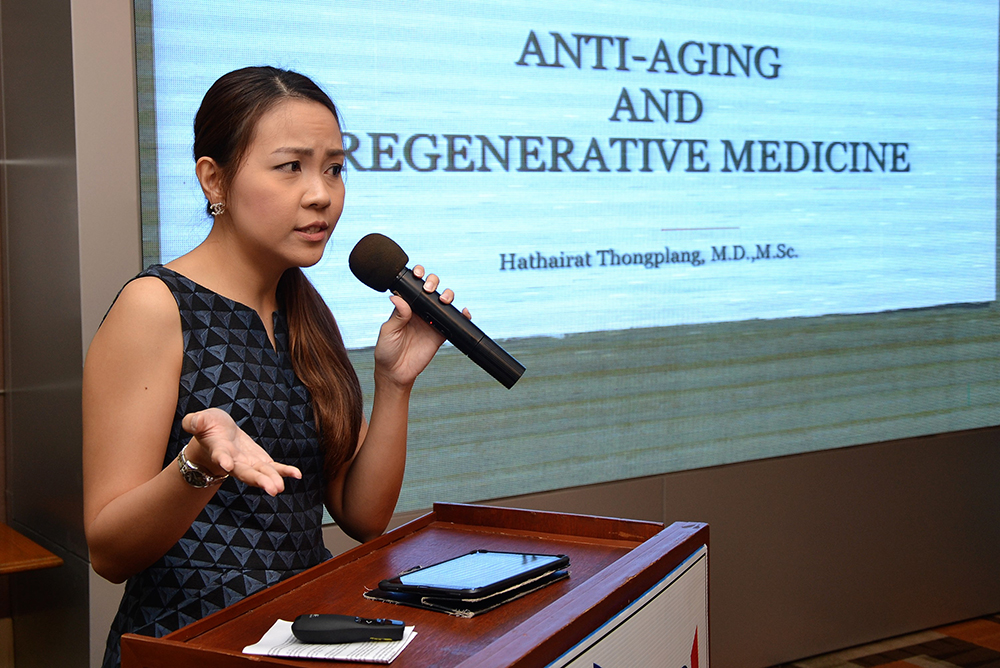
Dr. Hathairat is a Doctor of Medicine and also has a Master of Science Degree in Ani-Aging and Regenerative Medicine. She is also certified by the American Board of Nutritional Wellness and has won awards for research articles, including the 4th Suan Sunandha Academic National Conferences, on “Research for Sustainable Development”, in 2016.
The doctor explained that the body is in constant change. Trillions of body cells are destroyed or die and at the same time, new cells are formed, every minute of the day. As we get older, the skin starts to wrinkle, as it becomes thinner and less elastic. The skin also becomes drier, since it creates less oil and sweat. Bones and muscle tissue become weaker, our memory is less efficient and the immune system starts to lose its ability to fight diseases. The aging process involves multidimensional changes with the physical, psychological, cultural and social aspects of our lives.
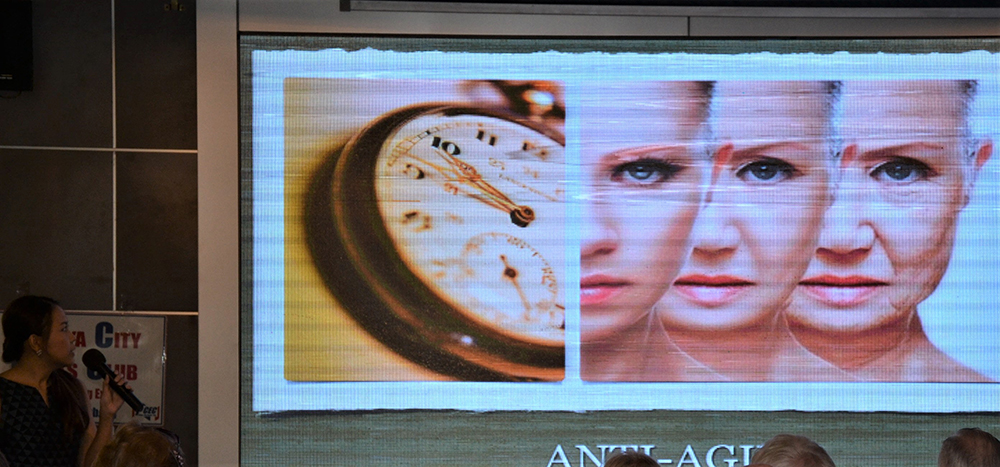
There are four major theories that categorize the aging process. First is the Genetic Theory: Cellular multiplication slows the aging process, however, the genes associated with the mechanism of programmed cell death or apoptosis creates the aging process. Within the immune system, T-lymphocytes will decrease with aging and the body becomes more vulnerable to disease.
Second is the Free Radical Theory: A free radical is any molecular species capable of independent existence. These free radicals attack important macromolecules, leading to cell damage. Free radicals are derived from either normal metabolic processes or from an external source. External sources come from x-rays, sunlight, cigarette smoking, air pollutants or industrial chemicals. Free radical theory was only concerned with free radicals such as superoxide (O2-), but it has since been expanded to encompass oxidative damage from other reactive oxygen species such as hydrogen peroxide (H2O2), or peroxynitrite (OONO-). Whether reducing oxidative damage below normal levels is sufficient to extend lifespan, remains an open and controversial question.
The third is the Hormone Theory: Hormones control the growth and development of our body and are responsible for healthy body functions as well as the aging process. Decreases in hormones, produced by various glands, causes bone loss, depression, dementia, loss of sex drive and a multitude of other medical conditions. Diminished hormone production may seem inevitable, however, the ability to restore/balance hormone levels may restore or slow these negative effects.
The last is the Wear and Tear Theory: The aging process can be self-inflicted. For example, poor diet, overconsumption of alcohol, heavy smoking, lack of exercise, inadequate rest/sleep or mental stress, will likely cause early aging. Just living a sluggish lifestyle not only makes one feel old but is thought to increase the aging process.
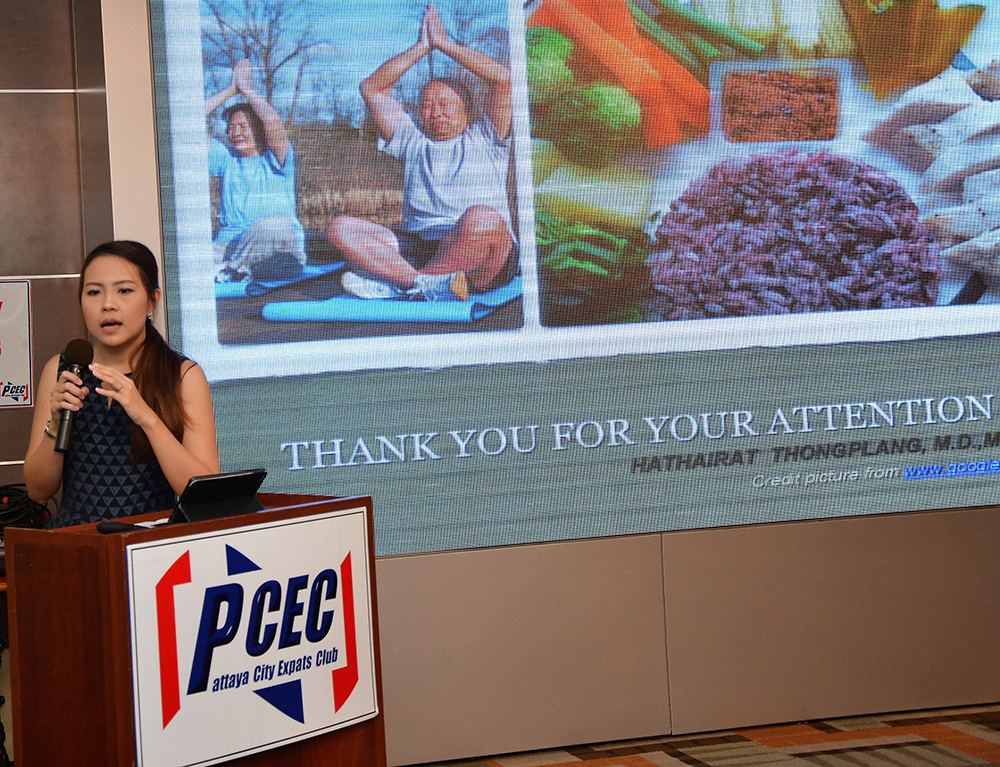
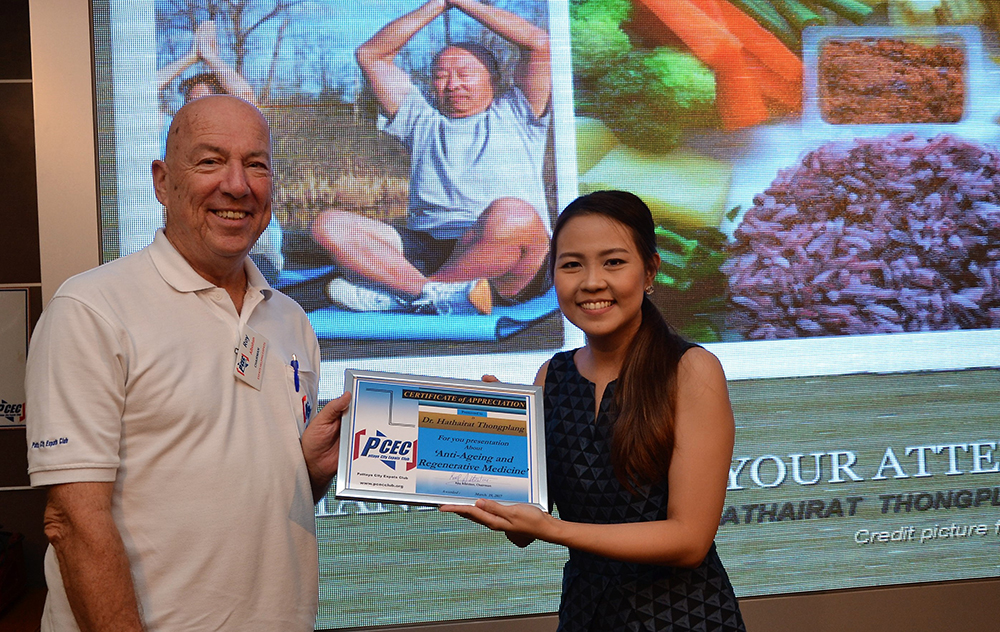
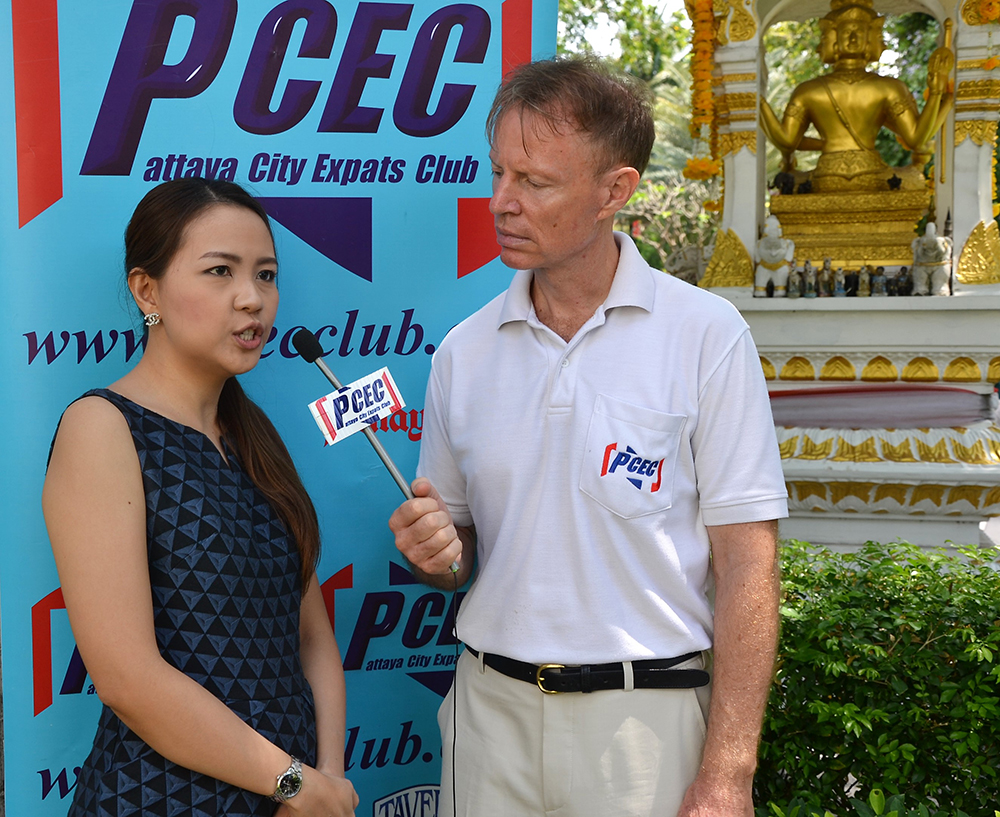
Dr. Hathairat said that people seek medical guidance for ways to stay healthy, active and vital. As a result, the principles of the anti-aging lifestyle are gaining rapid and widespread acceptance. Anti-aging medicine is founded on the application of advanced scientific and medical technologies for the early detection, prevention, treatment, and reversal of age-related dysfunction, disorders, and diseases. Further, it is a healthcare model promoting innovative science and research to prolong the healthy lifespan in humans. The phrase “anti-aging,” as such, relates to the application of advanced biomedical technologies, focused on the early detection, prevention, and treatment of aging-related diseases. Blood testing and the resultant treatments are most important, in preventative tools that can be used to help head off health problems. Anti-aging lab tests provide insights into: Anti-oxidant and free radical levels, vitamin and mineral levels, hormone levels, cardio-ankle vascular indexes, and DEXA scan results.
In conclusion, she explained that one should avoid bad habits, such as smoking and drinking. The doctor recommends preventative screenings and physical examinations to check patients’ current health and risks. The key to aging gracefully is to realize the importance of getting the most out of every day of your life.
The presentation was followed by an update of current events and activities and the Open Forum, where questions are asked and answered or comments made about Expat living in Pattaya. For more information about the PCEC, visit their website at www.pcec.club.




